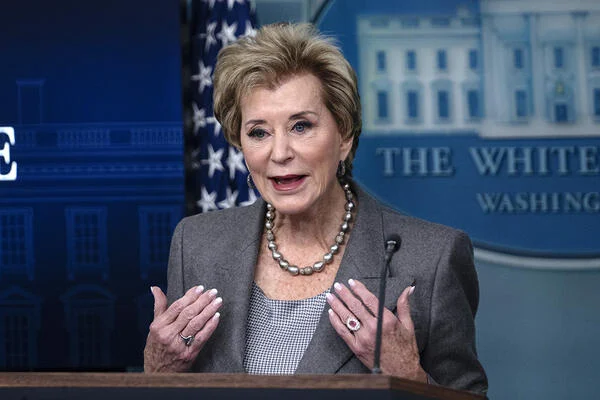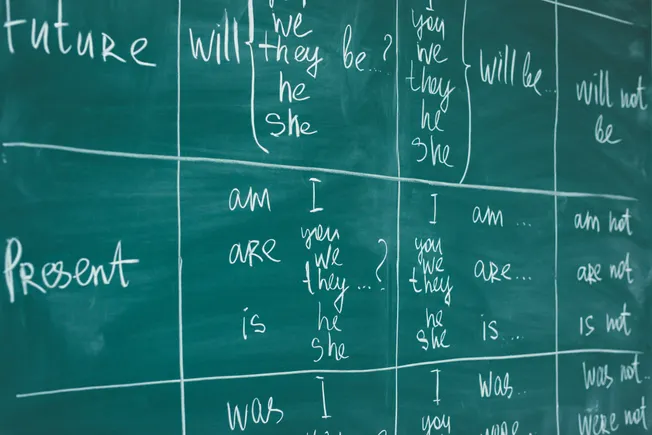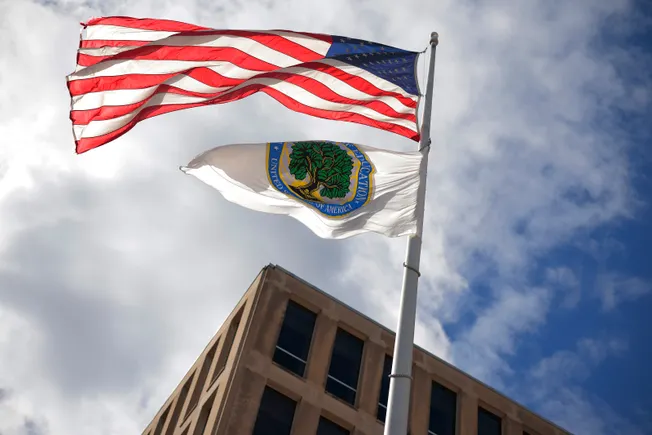A federal judge on Thursday struck down the U.S. Department of Education’s guidance that threatened to strip colleges and K-12 schools of their federal funding over diversity, equity and inclusion practices it deemed unlawful.
U.S. District Judge Stephanie Gallagher’s final judgment in the case comes after she and another federal judge temporarily blocked the guidance while litigation proceeded.
Her ruling vacates the Education Department’s Feb. 14 guidance. It also strikes down a Trump administration directive that ordered K-12 school districts to certify they’re not using DEI practices or risk losing federal funding. However, the Trump administration had already withdrawn the requirement due to a prior court ruling.
The Education Department, Gallagher wrote Thursday, didn’t take the proper steps to issue the new guidance. She also ruled that the guidance violated constitutional rights by placing viewpoint-based restrictions on classroom speech and using vague language that didn’t make clear what kind of DEI initiatives were prohibited.
The ruling deals a blow to one of the Trump administration’s many efforts to stamp out DEI practices in colleges and elsewhere.
The Feb. 14 guidance letter immediately sparked outcry from educator groups, who argued that it would limit what they could teach in the classroom, including instruction on history or systemic racism. They also argued it would prohibit campus resources, such as college cultural centers.
Shortly after its release, the guidance and related actions from the Education Department sparked at least three separate lawsuits. Gallagher’s ruling is in response to the complaint brought by the American Federation of Teachers, the union’s Maryland affiliate, the American Sociological Association and an Oregon school district.
Those groups hailed the ruling Thursday.
“Today’s ruling makes it clear that, regardless of President Trump’s wishes and endless attacks, our public education system will continue to meet the diverse needs of every student — from teaching true history to providing critical resources,” AFT-Maryland President Kenya Campbell said in a statement.
The required steps for new policies
The sweeping Feb. 14 guidance interpreted the U.S. Supreme Court case striking down race-conscious admissions to extend to every aspect of education, arguing that colleges and K-12 schools were prohibited from considering race in any of their policies. The letter said that ban extended to scholarships, housing and graduation ceremonies.
The letter also took aim at classroom instruction and DEI practices.
“Educational institutions have toxically indoctrinated students with the false premise that the United States is built upon ‘systemic and structural racism’ and advanced discriminatory policies and practices,” Craig Trainor, acting assistant secretary for civil rights, wrote in the letter. “Proponents of these discriminatory practices have attempted to further justify them — particularly during the last four years — under the banner of ‘diversity, equity, and inclusion.’”
The Trump administration has maintained that the Feb. 14 guidance merely restates colleges and K-12 schools’ existing obligations under Title VI, which bars federally funded institutions from discriminating based on race, color or national origin. However, Gallagher pushed back on that argument, writing that the guidance created new policies for colleges and schools to follow.
Title VI — along with the landmark court decision striking down race-conscious admissions — have “never been interpreted to preclude teaching about concepts relating to race,” Gallagher wrote.
The Trump administration could have issued guidance to note that it would prioritize Title VI enforcement to “discrimination against all groups, even those in the majority,” Gallagher added. “But it went much farther than that by expanding the definitions of ‘stereotyping,’ ‘stigmatizing,’ and ‘discrimination’ to reach entirely new categories of conduct.”
Moreover, the Education Department cited the Feb. 14 letter the following month when it launched investigations into more than 50 colleges over allegations that their programs or scholarships have race-based restrictions. Most of the institutions were targeted because of their relationship with The PhD Project, a nonprofit that for years provided support for underrepresented groups earning doctoral degrees in business but recently adopted a broader mission.
Because the Education Department’s guidance creates new policies and legal obligations, it therefore is a legislative rule, according to Gallagher’s ruling. Under the Administrative Procedure Act, the Education Department can only create legislative rules by following certain steps, such as first going through a notice and comment period.
Yet the department didn’t take those steps, wrote Gallagher, who was appointed by Trump in his first term.
“This Court takes no view as to whether the policies at issue in this case are good or bad, prudent or foolish, fair or unfair,” Gallagher wrote. However, she added, “it must closely scrutinize whether the government went about creating and implementing them in the manner the law requires. Here, it did not.”
Free speech and due process violations
Gallagher also agreed with the plaintiffs’ argument that the Education Department’s letter and Q&A document violated the constitutional rights of free speech and due process.
A couple weeks after the Feb. 14 guidance, the agency released a 10-page Q&A document that appeared to walk back some elements of the original letter. For instance, it said the department didn’t have the authority to control college or school curricula.
Yet in the same document, it also listed examples of curricular decisions that it could potentially deem discriminatory, such as pressuring college students to “take certain positions on racially charged issues” or mandating courses “designed to emphasize and focus on racial stereotypes.”
The Education Department said it would examine the facts of each case to determine whether a racially hostile environment exists. That means that the department’s investigation would determine whether curricular choices amount to racial harassment, Gallagher wrote.
“The broader context provided by the Letter and FAQs in fact suggests that broad swaths of classroom speech may be suspect, a stark contrast from DOE’s previous position that essentially no classroom speech was suspect,” she added.
The letter doesn’t define what constitutes a DEI program. Gallagher wrote that vagueness gives the Education Department the power to determine what counts as DEI, thereby deciding what is unlawful, she added.
“The crux of the problem, in this Court’s view, is that the Letter says to teachers and schools ‘if you engage in DEI practices we deem impermissible, you will be punished’ but does not provide any clarity on what DEI practices are impermissible,” she wrote.
The Education Department called Gallagher’s ruling disappointing in a Friday email to K-12 Dive, Higher Ed Dive’s sister publication.
“Judicial action enjoining or setting aside this guidance has not stopped our ability to enforce Title VI protections for students at an unprecedented level,” the agency said. “The Department remains committed to its responsibility to uphold students’ anti-discrimination protections under the law.”
The Education Department did not immediately respond to Higher Ed Dive’s question about whether it planned to appeal.











